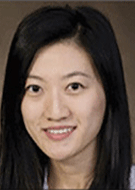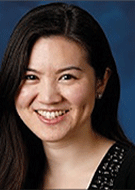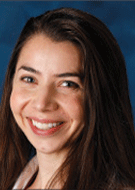COVID-19 Pandemic Affects Core Exam Preparation for Radiology Residents
Trainees juggle studying, academic and personal lives while preparing for the exam





Radiology residents spend much of their third year of residency practicing the fine art of balance in studying for the American Board of Radiology’s (ABR) Core Exam while completing their rotations designed to provide real-world experience in radiology subspecialties.
The COVID-19 pandemic derailed not just the ABR Core Exam, which was postponed from February 2021, but the ways that radiology residents had to plan studying for the exam. Radiology programs also had to revise rotations to give trainees time to study while maintaining their hands-on training.
Careful Planning Out the Window
The ABR Core Exam is typically held in-person and is the culmination of extensive training for radiology residents. Third-year trainees have traditionally worked with their departments to develop a robust studying schedule and a lighter, flexible rotation that gave them time to study while maintaining important patient care work. COVID-19 threw a wrench into all these plans during 2020.
The exam was postponed several times, resulting in third-year residents becoming fourth-year residents while having to continuously study in the off chance that the exam date would be announced shortly.
“Postponing the exam certainly affected my fourth year, because I was hoping to spend all of my time preparing for fellowship and learning the nuances of radiology within the subspecialities,” said Siva Gaddam, MD, PGY4, University of Maryland School of Medicine, Baltimore. “However, I ended up spending two months in third year studying rigorously for the exam only to have it postponed. I had to then spend another two months in fourth year studying for the exam.”
Eventually, the delayed exam in 2020 was held remotely in early February 2021. However, for many the cumulative stress was wearing.
“Having a delayed exam resulted in difficulty focusing on rotations during my fourth year before the exam,” said Lucy Lester, MD, PGY4, Northwestern McGaw Medical Center in Chicago. “Fourth-year rotations are supposed to prepare us for the real-world practices of radiology. However, the constant reminder that we needed to focus on studying for the exam hindered our ability to put the fullest effort into learning from these rotations.”
COVID-19 Sends Trainees Home Alone, Without Traditional Board Review
COVID-19 altered the approach to studying for the boards because programs relied more heavily on virtual education resources. For many radiology trainees, this lack of in-person board review was challenging as they prepared for the exam.
“One of the challenges of COVID is the isolation and difficulties of interacting with faculty and fellow residents,” said Grace G. Zhu, R4, University of Utah Health, Salt Lake City. “A lot of the learning for the board exam occurs outside of structured read-outs and lectures such as informal Q&A with faculty and participating in study groups with our co-residents. Due to COVID, the interactive and informal ways to learn were mostly eliminated.”
Other residents preferred to study alone and felt that the pandemic had little effect on their strategy for board preparation.
“While I feel that clinical education has certainly suffered due to the loss of imaging volume and lack of in-person teaching, the content of the core exam is rather different from everyday learning at the viewbox and requires more self-study that is more often done at home anyway,” said Hanna Liu, MD, PGY-5, University of California Irvine.
Trainees who missed the interactive nature of group studying developed their own unique ways of connecting with peers.
Watch Dr. Lester talk about the challenges of the ABR Core Exam during the pandemic:
“While I had some initial anxiety about the execution of a remote exam, most of this was ameliorated by the online practice test and systems check provided well in advance of the actual exam dates.”
REBECCA BENNETT, MD
Creative Solutions to Exam Preparation
To compensate for the lack of in-person collective studying that can be a hallmark of preparing for the exam, many trainees developed their own unique ways of making up for this loss.
Dr. Zhu developed RadDiscord, an online interactive community that connected residents, fellows and faculty from all over the world with the goal of studying for the exam during the pandemic.
“In a time of COVID isolation, RadDiscord was able to bring residents together from all over the country to learn and study for the ABR Core Exam in a novel way,” Dr. Zhu said. “I was able to participate in over 70 virtual live group study sessions, engage in interactive Q&A and host 16 board reviews with faculty from 11 different academic institutions. These interactions broadened my perspective and knowledge base beyond what I learned at my home institution.”
Remote Exam Earns High Marks
The ABR made the decision to proctor a remote exam and anticipation mounted as the exam dates neared. The unknown of conducting such an important exam remotely, coupled with the ABR recommendations to ensure a fair and safe exam raised anxiety levels. However, most test-takers admit that the remote exam was a relatively straightforward process.
“While I had some initial anxiety about the execution of a remote exam, most of this was ameliorated by the online practice test and systems check provided well in advance of the actual exam dates,” said Rebecca Bennett, MD, PGY5, University of California Irvine. “I appreciated not having any surprises on the first day of the test and getting to troubleshoot my webcam and internet ahead of time. I also felt much more comfortable using the allotted break times at home than I have at testing centers during other exams.
“I’m currently pregnant and being at home made things like frequent restroom breaks, climate control, snacks and a reliably comfortable exam chair much easier for me. I thought the overall exam experience was much less stressful than expected and it was easier to unwind in between the test sessions and test days,” Dr. Bennett added.
Others agree with Dr. Bennett’s assessment, finding it less stressful not having to travel to and from the exam location, which made it easier to unwind at the end of the day.
“My co-residents and I were initially skeptical about taking the exam on our own computers as well as taking it in an environment that met all the criteria that ABR had set,” Dr. Lester said. “Many of us have significant others, pets or children at home so finding a quiet place to take the exam was going to be a definite challenge. Luckily, our program booked individual attendings offices and set up new computers to allow many of us to take the exam at the hospital. I chose to take it at home to avoid long commutes, which I felt was an even better decision.”
Most agree that the ABR process for the remote exam, such as advance technical support and a helpline, was very efficient.
“I thought the software was easy to use and reliable enough to make this a viable option for future exams,” Dr. Bennett said.
Residents Open to Future Remote
For all the changes that COVID-19 has made in radiology trainee education, the ability to take the core exam remotely seems to be one many residents would welcome.
“I was initially concerned about the remote exam but it was an extremely good experience. I personally believe this is how this exam should be administered in the future,” Dr. Gaddam said.
“Taking the remote exam was a relatively straightforward process,” Dr. Liu agreed. “With a few tweaks, I think all our exams could likely be remote in the future, which would save candidates from the added stress and financial burden of travel, finding accommodations and changing time zones.”
For More Information
Learn more about RSNA Trainee Resources
Access RSNA COVID-19 Resources
Find Dr. Zhu on Twitter at @totallyskates
Read previous RSNA News stories on radiology residents during the pandemic:
- Radiology Residents Find Jobs Virtually in the Era of COVID-19
- COVID-19 Pandemic Alters Long-Term Plans for Radiology Trainees
- Radiology Trainees on the Front Lines of COVID-19